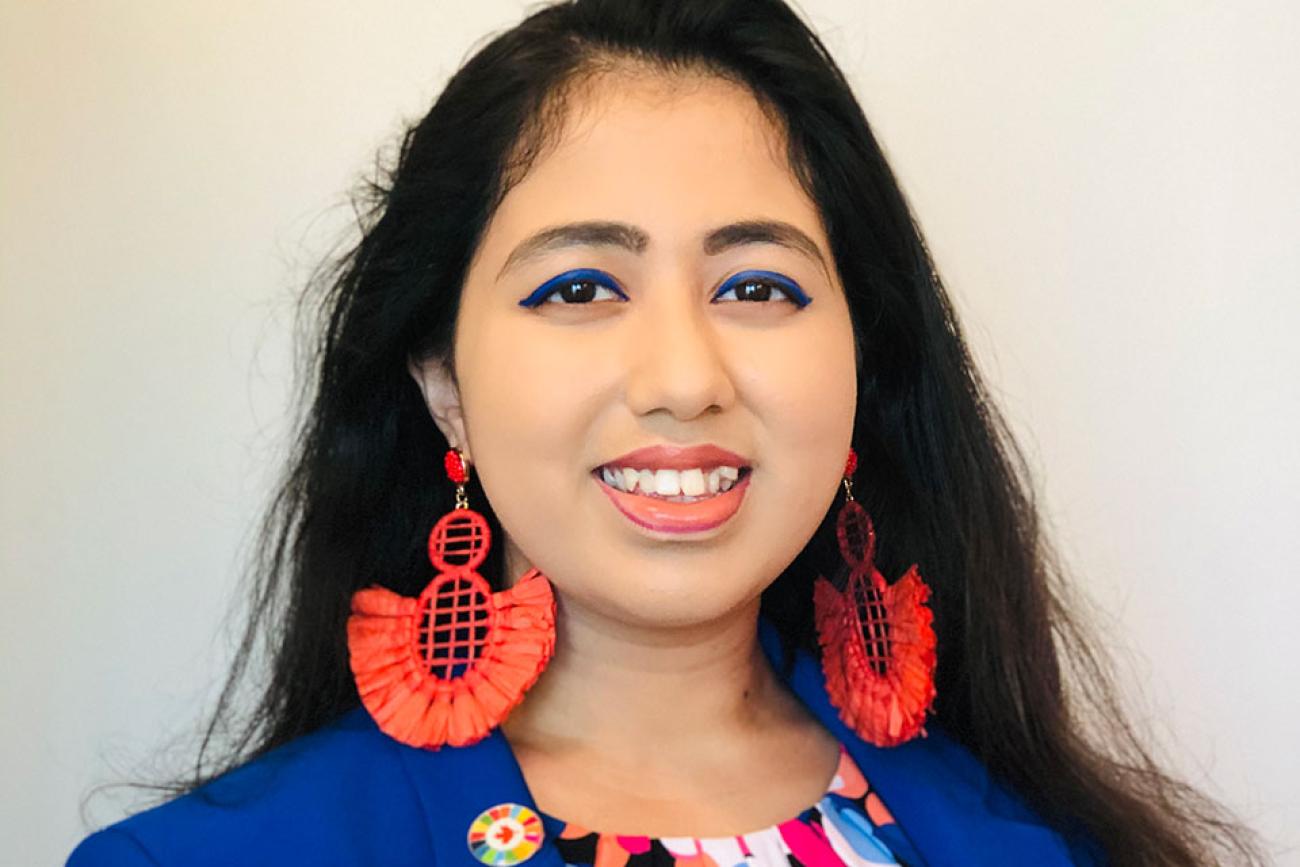#YouthDay: Feminist Youth Leader and Environmentalist from the UAE

Celebrating International Youth Day with the leadership of young women. The story of Kehkashan Basu, feminist youth leader and environmentalist from the UAE.
I am Generation Equality because…
“I consider myself very fortunate to be born in a family where compassion and empathy form the basis of our lives, and where everyone is treated equally, regardless of their gender. I have always believed that helping others and protecting the planet was [humanity’s] responsibility. [Furthermore], I'm born on 5 June, World Environment Day, and my mother always told me that it was my moral responsibility to give back to people and the planet.
When I was seven years old, I saw an image of a dead bird with its belly full of plastic; that was very disturbing for me. Around the same time, I attended a lecture by environmentalist Robert Swan, whose words, "the greatest threat to our planet is the belief that someone else will save it," deeply resonated with me. At that point, I decided that I would start my 'sustainability journey' by planting my first tree on my eighth birthday.
Climate change is an inequality multiplier
The climate crisis and gender inequality are two of the most urgent issues of our time. Addressing these issues becomes even more pertinent when we explore their intersections with racial inequalities, socio-economic disparities, and of course, with each other. That is why, at Green Hope Foundation, we work on feminist climate justice.
For women and girls who live in climate change-affected communities we work in, safety is a huge problem, along with lack of access to clean water and sanitation, to education, and to electricity in their villages – and often, no stable source of income. Climate change continues to act as an inequality multiplier.
Turning hope into reality
As Co-Lead of the Generation Equality Action Coalition on Feminist Action for Climate Justice, I think that GEF was a wonderful platform to bring together those who had dedicated their lives towards achieving gender equality. My sense of hope for a better world was vindicated by my belief that, while there still remains a lot to be done, actions for climate justice in the next five years will definitely shift towards adopting an intersectional approach.
As grass-roots actors who engage with stakeholders from the government, private sector and civil society, Green Hope Foundation will continue to do its bit to create a more equal world and inspire others to do the same, so that the hope turns into reality on the ground.
A moral imperative to act
As young people, we have a lot of power to bring about positive change.
![]()
“Being a climate and gender activist is no longer a choice, it is a responsibility.
The first step is educating ourselves about the problems facing our local communities. If we don't have the knowledge, then we cannot take action.
Once we have the awareness, then we can spread it and take concerted, localized action towards human and planetary wellbeing, whether that is growing our own food, switching to solar-powered cars, or planting mangroves, the list is endless.
Being a climate and gender activist is no longer a choice, it is a responsibility, especially in this day and age where our world is ridden with myriad challenges that are creating social and planetary imbalance. In order to rectify this, it is imperative that every single person listens to their conscience and takes it upon themselves to be climate and gender activists, so that together, we can create a sustainable world for all.”
Kehkashan Basu is the Founder-President of Green Hope Foundation, a global social innovation enterprise that works at a grass roots level in 25 countries, empowering young people, especially those from vulnerable communities, in sustainable development. Basu is a member of the World Humanitarian Forum Youth Council and Co-Lead of the Generation Equality Action Coalition on Feminist Action for Climate Justice. She is committed to amplifying the voices of young people, women and girls, in decision-making processes.
Original article published on UN Women Arab States website.


